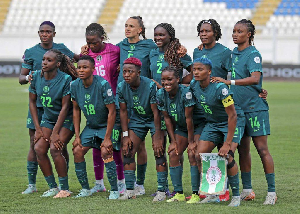Imo and Anambra are the states worst hit by the Indigenous People of Biafra (IPOB) violent attacks that have been ensuing since 2021.
In August 2021, IPOB, a group agitating for the independence of the southeastern region and some parts of the southsouthern region of the country, ordered the region’s residents to sit at home on Mondays following the arrest of its leader, Nnamdi Kanu.
Through the sit-at-home order, the outlawed group brought economic life to a standstill every Monday, turning cities into ghost towns.
The separatist group employed looting, targeted assassination, arson and other violent attacks.
In four years, the affected regions have recorded 332 violent incidents and a total of 776 fatalities.
A consulting firm, the SB Morgen Intelligence, analysed these figures and the state worst hit by the violence.
According to the firm, Imo State is the worst hit with 130 violence incidents and 332 recorded attacks, while Anambra, the second worst-hit state, recorded 94 violent incidents and 202 deaths in the four-year timeframe.
“Southeast Nigeria faces a deepening security crisis with a sharp five-year rise in violence: 332 attacks and 776 deaths (2021-2025). Imo is the epicentre (130 incidents, 332 deaths), followed by Anambra (94 incidents, 202 deaths),” the report read in part.
“Violence surged in 2024 (133 incidents, 313 deaths), a threefold increase from 2023. No state is spared, but Imo and Anambra are worst hit, linked to IPOB/ESN activity and state responses.”
The report cited Imo’s history of political crises and heavy military crackdowns, such as Operation Python Dance, as the factors fueling the conflict. It added that the aggressive tactics of security forces have driven local communities to sympathise with separatist groups, thus making Imo a major hotspot for IPOB-related activities.
Anambra’s position as the second-worst-hit state, according to the report, is influenced by a high concentration of pro-Biafra sentiment, driven by political rivalries and its economic significance as a commercial hub.
The report also noted that Anambra State’s urbanisation provides fertile ground for violence and recruitment by IPOB.
“Additionally, both states’ proximity to rural areas and porous boundaries make them vulnerable to infiltration
by militants, while the fragmented security apparatus further exacerbates vulnerabilities.”
While Imo and Anambra recorded the most violent incidents and casualties, Ebonyi, on the other hand, recorded the least, with only 30 incidents and 61 fatalities.
“This is significantly lower compared to the other states, indicating that Ebonyi has been relatively less affected by the violence sweeping through the region.”
SBM Intelligence attributed the state’s low incident record to the proactive and aggressive stance taken by the Ebonyi State Governor.
In April, The Guardian reported that normalcy is beginning to return to Enugu State and some southeastern regions as the sit-at-home order fades.
General News of Tuesday, 27 May 2025
Source: www.guardian.ng













